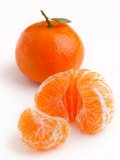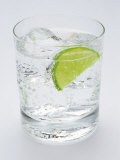|
Nutrition Facts To Live By
I have always found nutrition facts very interesting. I love to know what effect or benefit the food I'm eating is having on my body.

I don’t know about you, but I just love food! I love to eat and if I can find delicious tasting food that is really good for me too then I’m in heaven! The trick is to know what is good for you and what is not. Ever wonder what a particular food consists of and how it benefits your health? We'll begin our nutrition facts tour by learning about macronutrients - carbohydrates, proteins and fats. They are called macronutrients because they are nutrients that are needed in large quantities. They provide the body with energy it needs to survive and are also needed for metabolism, growth and essential body functions. All of them are equally important and we should eat them every day for good health.
Micronutrients are vitamins and minerals and are needed in smaller quantities. Then of course there is water which is vital too. The only other element possibly in our diet that provides calories is alcohol, but that isn’t necessary for survival so it’s not considered a nutrient. Every single little molecule our body gets comes from the food we eat and water we drink. Eating the highest quality food in the right quantities helps us reach our highest potential for vitality, health and freedom from disease. 
These food nutrition facts can help you to achieve a balanced diet. It may not be possible at every meal, but if you look at the day as a whole, achieving a balanced diet is not that hard. As we’ve seen earlier, our diet is made up of carbohydrate, proteins and fats. Each one is vitally important and we shouldn’t skip any. It is always a great idea to eat protein with carbohydrates as this helps balance the blood sugar and keeps you feeling fuller for longer – which is great for maintaining a healthy body weight. Use this nutrition guide to get the best out of every meal.
Some Interesting Nutrition Facts
Carbohydrates are our body’s major source of energy. There are 2 types of carbohydrates: simple and complex. We should aim to eat more complex carbs because they are unrefined and therefore aren’t stripped of their fiber and nutrients. They are digested slowly which keeps the body’s blood sugar stable and us feeling fuller for longer. They also contain fibre which is essential for good health. Simple carbs have been stripped of all their goodness and also digest a lot quicker which causes the body’s blood sugar level to shoot up. When the blood sugar level falls soon after we feel hungry again.
The different amino acids have different functions. Some are used to build muscle and maintain cells, others make hormones, others antibodies – proteins have many very important functions in the body. There are 2 kinds of protein – complete and incomplete proteins. To make sure we get all the protein we need it is best to eat a variety of foods rich in protein such as eggs, meat, beans, lentils, quinoa & fish.
Unsaturated fats are the good fats and there are 2 kinds of them too. Firstly there are polyunsaturated fats which are the omega 3 and omega 6 fats. They are essential fats which your body can’t do without. They are essential for the brain and help reduce the risk of many health dangers such as cancer and heart disease. The second good fat is monounsaturated fat. This isn’t an essential fat but is good for you. Some studies have shown that monounsaturated fats can help lower the bad LDL cholesterol level in the blood. Saturated fats aren’t essential at all and it’s best to limit our intake of them as they can contribute to obesity, high blood cholesterol and heart disease.
It is estimated that 75% of people living in America have mild constant dehydration which likely applies to half the world population. Every cell in our body depends on water for proper functioning. Our blood is mostly water and the brain, lungs and muscles all contain a lot of water. Did you know that many times thirst is confused with hunger. We may think we’re hungry, but we’re actually thirsty. What an interesting and useful nutrition fact that is! Why is it important to drink 6-8 glasses of water daily?
After reading this nutrition guide, you now have a broad overview of basic nutrition facts and know why we should be eating complex carbohydrates, a variety of proteins and avoiding bad fats. It is actually pretty straight forward, just remember to take it one step at a time and most of all, enjoy it! For some more information about healthy eating, go to the
Healthy Eating Pyramid page
which offers very good, very reliable information to help us make better food choices. You can download this printable food pyramid for free.
Patrick Holford - Hear about simple nutrition changes that can help you beat stress and fatigue, manage weight, keep you and your family fit and healthy. What All Weight Loss Programs Must Offer to Ensure Your Success 
Subscribe and Receive a Free Recipe Book!If you would like to be kept in the loop about what's happening on this website, please subscribe to Simply Healthy, my free e-zine. Included in your subscription is a great printable muffin recipe book that has some delicious and healthy muffin recipes that are so quick and easy to make. Simply fill in your name and e-mail address below, then click on "subscribe".
|








